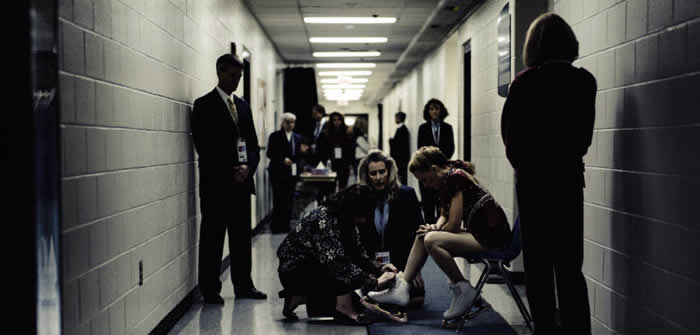I, Tonya, a biographical film of the infamous figure skater Tonya Harding was a weird mix of hilarity and tragedy – which was probably the right tone considering how crazy her life seemed to be.
One minute the film has you bending over laughing but in the next minute you feel sick to your stomach after witnessing Harding (Margot Robbie) take another beating from her mum LaVona (Allison Janney) or her ex-husband Jeff Gillooly (Sebastian Stan), but somehow the film works as a black comedy because the true life events that culminated in Gillooly hiring a man to injure Harding’s skating rival Nancy Kerrigan are both sinister – and amusing.
The 1994 incident saw Gillooly and Harding’s bodyguard Shawn Eckhardt send some goons to put Kerrigan out of action so she wouldn’t be around to contest the 1994 Olympics; the scheme failed but Harding would eventually plead guilty for her role in the attack.
The film built up to the controversial event but also focused on Harding’s life when she was younger and tried to show the audience how one young woman would get to a point in her life when she would feel the need to injure a feared opponent.
Harding’s story is perfect for a biopic – a girl from the wrong side of the tracks who beat the odds to make it – and there is even a nod to the Rocky films (which may have been an influence) with Tonya performing exercises from the famous training montage.
Most of the film focuses on Harding’s struggle to be accepted by the skating community after coming from a working class background and director Craig Gillespie’s decision to show brutal scenes of physical and psychological domestic violence towards Harding from both her mother and ex-husband helped to prove that this was a woman who always felt like the underdog.
Dspite the tragedy of Harding’x life, the film leaves you questioning whether you should be laughing or appalled as there is never a joke or amusing situation too far away and yet Gillespie pulls it off, along with writer Steven Rogers who has managed to turn Harding from the villain of the 1990s to a woman who survived abuse, from her mother, her husband – and then also her country.
Robbie strikes the perfect tone between vulnerability and strength as Harding, while Janney was just ridiculously mean and funny as her mother; don’t be surprised to see either of them up for the big awards this festival season.
Gillespie and Rogers paced the film well and made great use of the material available to them, and the skating moments were also shot brilliantly by cinematographer Nicolas Karakatsanis, whose camera is always in the right place at every moment to capture the skill that Harding had, and ultimately places her back in the world as a woman who deserved more respect than she was given.
Written by Jimmy Nsubuga for Metro

